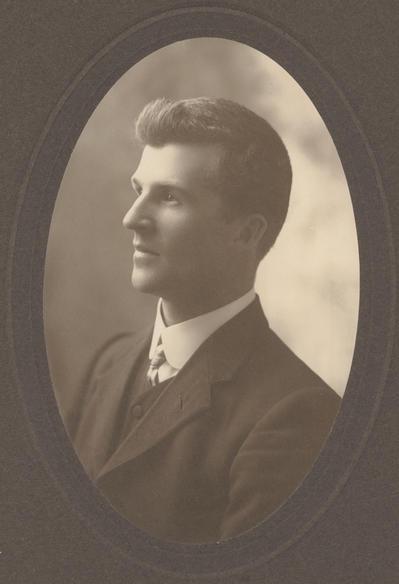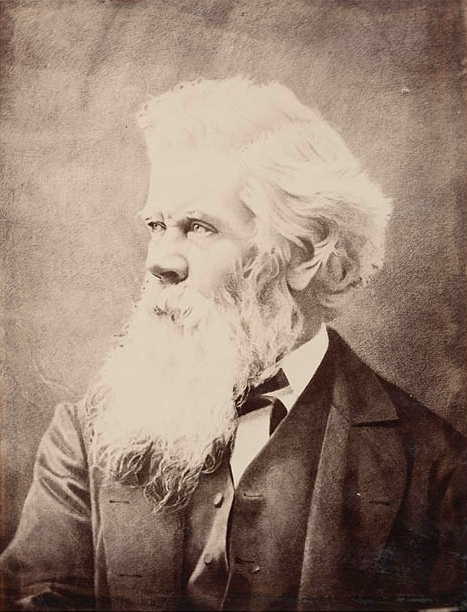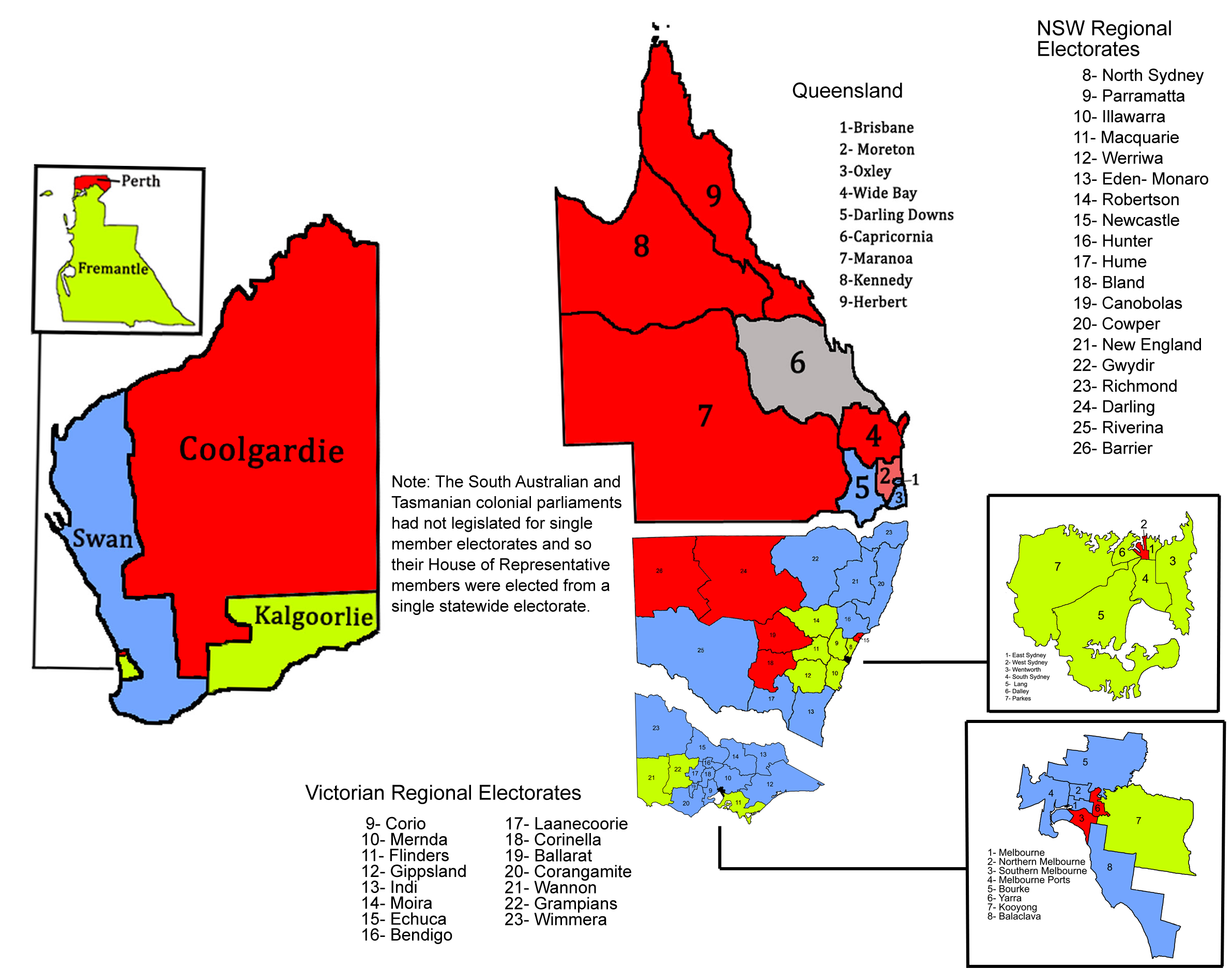|
David Watkins (Australian Politician)
David Watkins (5 May 1865 – 8 April 1935) was an Australian politician. He was an Australian Labor Party member of the New South Wales Legislative Assembly for Wallsend from 1894 until 1901. At Federation, he was elected to the new Australian House of Representatives as the Labor member for Newcastle and served until his death in 1935. Watkins' death left former Prime Minister Billy Hughes as the only remaining member of the First Parliament still in the House. Early life and career Watkins was born in Wallsend, New South Wales, the third son of Welsh immigrants John Watkins, a miner, and his wife Mary Ann, née Hopkins. He was educated at Wallsend Public School, but left school at thirteen. He worked in the Wallsend office of the '' Newcastle Morning Herald'' for two years, then worked for W. J. Johnson getting timber for the Wallsend Colliery. He went to work for the Wallsend Colliery directly in 1882, first as a water baler and wheeler, and then from 1884 as a miner. He ... [...More Info...] [...Related Items...] OR: [Wikipedia] [Google] [Baidu] |
The Honourable
''The Honourable'' (British English) or ''The Honorable'' (American English; see spelling differences) (abbreviation: ''Hon.'', ''Hon'ble'', or variations) is an honorific style that is used as a prefix before the names or titles of certain people, usually with official governmental or diplomatic positions. Use by governments International diplomacy In international diplomatic relations, representatives of foreign states are often styled as ''The Honourable''. Deputy chiefs of mission, , consuls-general and consuls are always given the style. All heads of consular posts, whether they are honorary or career postholders, are accorded the style according to the State Department of the United States. However, the style ''Excellency'' instead of ''The Honourable'' is used for ambassadors and high commissioners. Africa The Congo In the Democratic Republic of the Congo, the prefix 'Honourable' or 'Hon.' is used for members of both chambers of the Parliament of the Democratic Repu ... [...More Info...] [...Related Items...] OR: [Wikipedia] [Google] [Baidu] |
1894 New South Wales Colonial Election
The 1894 New South Wales colonial election was held on 17 July 1894 for all of the 125 seats in the 16th New South Wales Legislative Assembly and it was conducted in single-member constituencies with a first past the post voting system. Section 23 (1) of the Parliamentary Electorates and Elections Act of 1893 conferred a right to vote on 'every male person, being a natural born ritishsubject, who shall have resided or had his principal place of abode in New South Wales for a continuous period of one year'. The 15th parliament of New South Wales was dissolved on 25 June 1894 by the Governor, Sir Robert Duff, on the advice of the Premier, George Dibbs. This election saw the elimination of multi-member districts. At the previous election there had been 20 two-member districts, 10 three-member districts, and 9 four-member districts. Their elimination also saw the Assembly reduced in size from 141 to 125 members. Also, for the first time, the election was conducted on the one day. ... [...More Info...] [...Related Items...] OR: [Wikipedia] [Google] [Baidu] |
Lang Labor
Lang Labor was a faction of the Australian Labor Party (ALP) consisting of the supporters of Jack Lang, who served two terms as Premier of New South Wales and was the party's state leader from 1923 to 1939. Following the expulsion of the NSW branch by the Federal Executive during the Federal Conference in March 1931, the expelled branch led by Lang ran as Australian Labor Party (New South Wales) in state and federal elections. Lang Labor reconciled with Labor in February 1936. In later years, the term "Lang Labor" also included Lang and his supporters who broke away (or were expelled) from the ALP in later years, forming breakaway party Australian Labor Party (Non-Communist) between 1940 and 1941, and between 1943 and 1950. During its time, Lang Labor had representation in both state and federal parliaments. Background Lang was elected leader of New South Wales branch of the Labor Party in 1922 by the NSW party caucus, after two interim leaders had been appointed durin ... [...More Info...] [...Related Items...] OR: [Wikipedia] [Google] [Baidu] |
Australian Labor Party (NSW)
Lang Labor was a faction of the Australian Labor Party (ALP) consisting of the supporters of Jack Lang, who served two terms as Premier of New South Wales and was the party's state leader from 1923 to 1939. Following the expulsion of the NSW branch by the Federal Executive during the Federal Conference in March 1931, the expelled branch led by Lang ran as Australian Labor Party (New South Wales) in state and federal elections. Lang Labor reconciled with Labor in February 1936. In later years, the term "Lang Labor" also included Lang and his supporters who broke away (or were expelled) from the ALP in later years, forming breakaway party Australian Labor Party (Non-Communist) between 1940 and 1941, and between 1943 and 1950. During its time, Lang Labor had representation in both state and federal parliaments. Background Lang was elected leader of New South Wales branch of the Labor Party in 1922 by the NSW party caucus, after two interim leaders had been appointed durin ... [...More Info...] [...Related Items...] OR: [Wikipedia] [Google] [Baidu] |
Australian Labor Party Split Of 1931
The Australian Labor Party split of 1931 was caused by severe divisions within the Australian Labor Party (ALP) over its economic response to the Great Depression in Australia. Amidst intense disagreement between economically conservative and radical elements of the party, two senior ministers in the Scullin Labor government, Joseph Lyons and James Fenton, resigned from Cabinet in January 1931. Lyons, Fenton and their supporters would subsequently merge with the conservative opposition Nationalist Party to form the new United Australia Party (UAP), led by Lyons with the last Nationalist leader, John Latham, as his deputy. In March 1931, the Labor Party split on the left as well, when Eddie Ward - a supporter of radical anti-austerity Premier of New South Wales Jack Lang - won a by-election, and was refused entry to the Labor caucus. Ward and five other Lang supporters formed a Lang Labor party on the crossbench, costing Scullin his majority. In November, Lang Labor supported ... [...More Info...] [...Related Items...] OR: [Wikipedia] [Google] [Baidu] |
James Scullin
James Henry Scullin (18 September 1876 – 28 January 1953) was an Australian Labor Party politician and the ninth Prime Minister of Australia. Scullin led Labor to government at the 1929 Australian federal election. He was the first Catholic, as well as Irish-Australian, to serve as Prime Minister of Australia. The Wall Street Crash of 1929 transpired just two days after his swearing in, which would herald the beginning of the Great Depression in Australia. Scullin's administration would soon be overwhelmed by the economic crisis, with interpersonal and policy disagreements causing a three-way split of his party that would bring down the government in late 1931. Despite his chaotic term of office, Scullin remained a leading figure in the Labor movement throughout his lifetime, and served as an ''éminence grise'' in various capacities for the party until his retirement in 1949. The son of working-class Irish-immigrants, Scullin spent much of his early life as a laborer an ... [...More Info...] [...Related Items...] OR: [Wikipedia] [Google] [Baidu] |
Western Front (World War I)
The Western Front was one of the main theatres of war during the First World War. Following the outbreak of war in August 1914, the German Army opened the Western Front by invading Luxembourg and Belgium, then gaining military control of important industrial regions in France. The German advance was halted with the Battle of the Marne. Following the Race to the Sea, both sides dug in along a meandering line of fortified trenches, stretching from the North Sea to the Swiss frontier with France, which changed little except during early 1917 and in 1918. Between 1915 and 1917 there were several offensives along this front. The attacks employed massive artillery bombardments and massed infantry advances. Entrenchments, machine gun emplacements, barbed wire and artillery repeatedly inflicted severe casualties during attacks and counter-attacks and no significant advances were made. Among the most costly of these offensives were the Battle of Verdun, in 1916, with a combined 700,000 ... [...More Info...] [...Related Items...] OR: [Wikipedia] [Google] [Baidu] |
Territory Of Papua
The Territory of Papua comprised the southeastern quarter of the island of New Guinea from 1883 to 1975. In 1883, the Government of Queensland annexed this territory for the British Empire. The United Kingdom Government refused to ratify the annexation but in 1884 a protectorate was proclaimed over the territory, then called "British New Guinea". There is a certain ambiguity about the exact date on which the entire territory was annexed by the British. The Papua Act 1905 recites that this happened "on or about" 4 September 1888.''Commonwealth and Colonial Law'' by Kenneth Roberts-Wray, London, Stevens, 1966. P. 132 On 18 March 1902, the Territory was placed under the authority of the Commonwealth of Australia. Resolutions of acceptance were passed by the Commonwealth Parliament, which accepted the territory under the name of Papua. In 1949, the Territory and the Territory of New Guinea were established in an administrative union by the name of the Territory of Papua and New Gui ... [...More Info...] [...Related Items...] OR: [Wikipedia] [Google] [Baidu] |
Owen Gilbert
Owen Gilbert (1868 – 13 November 1934) was an Australian politician. He was a Liberal Reform Party member of the New South Wales Legislative Assembly from 1901 to 1910, representing the electorates of Newcastle West (1901-1904) and Newcastle (1904-1910). Owen was born in Raymond Terrace, New South Wales and spent early years in Wallsend. He became a schoolteacher in 1885, with his first posting at Minmi, and taught for sixteen years in various New South Wales towns, including Junee and Goulburn, before finishing his teaching career at Hamilton. He was also involved in the Newcastle community, serving as secretary of the Newcastle Show. A one-time member of his local Labor League in the early 1890s, Gilbert was a committed free-trader by the time of Federation, and resigned from his teaching post in 1901 to contest the inaugural 1901 federal election as a Free Trade Party candidate in the seat of Newcastle; however, he was soundly defeated. Following his federal loss, Gilber ... [...More Info...] [...Related Items...] OR: [Wikipedia] [Google] [Baidu] |
Free Trade Party
The Free Trade Party which was officially known as the Australian Free Trade and Liberal Association, also referred to as the Revenue Tariff Party in some states, was an Australian political party, formally organised in 1887 in New South Wales, in time for the 1887 colony election, which the party won. It advocated the abolition of protectionism, especially protective tariffs and other restrictions on trade, arguing that this would create greater prosperity for all. However, many members also advocated use of minimal tariffs for government revenue purposes only. Its most prominent leader was George Reid, who led the Reid Government as the fourth Prime Minister of Australia (1904–05). In New South Wales it was succeeded by the Liberal and Reform Association in 1902, and federally by the Anti-Socialist Party in 1906. In 1909, the Anti-Socialist Party merged with the Protectionist Party to form the Commonwealth Liberal Party. History The party was centred on New South Wales, w ... [...More Info...] [...Related Items...] OR: [Wikipedia] [Google] [Baidu] |
1901 Australian Federal Election
The 1901 Australian federal election for the inaugural Parliament of Australia was held in Australia on Friday 29 March and Saturday 30 March 1901. The elections followed Federation and the establishment of the Commonwealth of Australia on 1 January 1901. All 75 seats in the Australian House of Representatives, six of which were uncontested, as well as all 36 seats in the Australian Senate, were up for election. After the initial confusion of the Hopetoun Blunder, the first Prime Minister of Australia, Edmund Barton, went into the inaugural 1901 federal election as the appointed head of a Protectionist Party caretaker government. While the Protectionists came first on votes and seats, they fell short of a majority. The incumbent government remained in office with the parliamentary support of the Labour Party, who held the balance of power, while the Free Trade Party formed the opposition. A few months prior to the 1903 election, Barton resigned to become a founding membe ... [...More Info...] [...Related Items...] OR: [Wikipedia] [Google] [Baidu] |
William Lyne
Sir William John Lyne KCMG (6 April 1844 – 3 August 1913) was an Australian politician who served as Premier of New South Wales from 1899 to 1901, and later as a federal cabinet minister under Edmund Barton and Alfred Deakin. He is best known as the subject of the so called " Hopetoun Blunder", unexpectedly being asked to serve as the first Prime Minister of Australia but proving unable to form a government. Lyne was born in Van Diemen's Land, the son of a pastoral farmer. When he was 20, he and cousin took up a sheep station in North West Queensland. However, he moved back home after a few years and found work in local government. Lyne moved to New South Wales in 1875, buying a station near Albury and becoming prominent in community affairs. He was elected to the colonial Legislative Assembly in 1880, and first entered cabinet in 1885 under George Dibbs. He was a member of the Protectionist Party, and a major opponent of free-traders Henry Parkes and George Reid. Lyne was ... [...More Info...] [...Related Items...] OR: [Wikipedia] [Google] [Baidu] |







